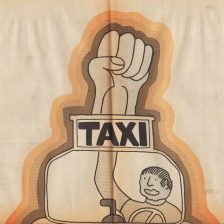- Learning or, more precisely, development should primarily be a social activity involving those who know more or who are more developed with those who are not so knowledgeable or developed. Those who know more or who are more developed need to create an environment for shared learning or development by “lending” some of what they know to the learners and enabling the learners to do things that they would not be able to do alone. This is what most parents do with their young children without articulating it as such when, for example, they help children bake cookies. In part, the concept is grounded on the notion that much learning is a cultural activity.
- The pioneering theorist of this approach was Lev Vygotsky in the Soviet Union (once referred to as “a visitor from the future”). His technical term for the concept was the “zone of proximal development.” Popularized versions of this in the teaching field emphasize “scaffolds”—meaning supports that enable students to do things that they can’t do independently.
- Literacy involves many different kinds of practices, roles, and identities of its participants. It’s helpful to think of the whole package as different kinds of discourses (not the post-modernist version). In this instance, a “discourse” can be understood as the social conventions and shared understandings of group members—like the discourse of basketball fans. Formal intellectual discourses, including the discourses associated with revolutionary theory, have numerous explicit and implicit assumptions and styles that are not obvious to newcomers to those discourses. While there are skills that newcomers may lack (such as the ability to automatically recognize words) and need to learn, there are also “rules of the game” that they need to become aware of.
- Individuals can only acquire fluency in a discourse through graded, contextualized and productive practice of all the different aspects of a discourse’s reading, writing and speaking texts and tasks. “Graded” means the right kind of text and task at the right time; “contextualized” means a text and task in a meaningful context—like understanding capitalist crises; “productive” means leading to development. By way of emphasis, not all practice is productive. We can all get better at being ineffective by practicing bad habits. The example I use is my swimming—I kind of taught myself to swim and became a very bad swimmer. More practice at swimming like I swim will just make me a better bad swimmer.
- In places like the United States where schooling is fairly universal, students can get schooled into some very counter-productive practices that enable them to get by but that are not at all transparent. See attached story.
- As a result, in many situations, what’s needed is a “systems reorganization” wherein individuals can unlearn much that they have learned and become accustomed to different ways of understanding the form and content of reading and writing (and math, but that’s not our immediate concern). Specifically, reading is not recognizing words and writing is not spelling.
- There are two fundamental types of reading activity—reading as recognition and reading as reasoning. An example of reading as recognition is what sports fans do when they read a newspaper account of a game they watched the night before. An example of reading as reasoning is what most mortals do when they read Hegel. It’s almost never easy. One goal of helping people become better readers is to shift the balance away from reasoning towards recognition (as they become more familiar with the distinctive meanings of certain words and stylistic conventions).
- The texts that developing or recovering readers need to read should be “considerate.” By that, I mean that they should be selected or constructed in ways that are deeply sensitive to what readers do and do not know and their likely misconceptions. When my now 29-year old daughter (who’s a high school math teacher) was in sixth grade, she had to write a report on the Vietnam War. She was bewildered by the books I have her so I wrote a kids’ history of the war for her to use. Among other things, it always explained a new word or concept—such as the difference between a civil war and a regular war. I wish that I still had a copy.



Leave a Reply